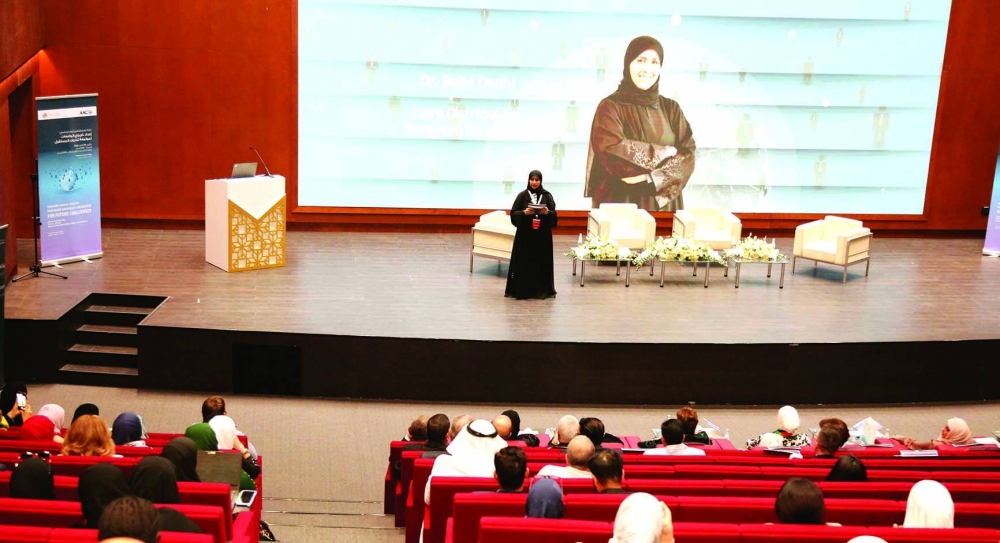The core curriculum programme in the Deanship of General Studies at Qatar University (QU), in partnership with the Association of American Colleges and Universities (AAC&U), hosted the 'Reimagining General Education: Preparing University Graduates for Future Challenges' international forum.
The event brought together academics, professionals, and researchers and featured innovative approaches and high-impact practices in general education. In a keynote address, Prof Lynn Pasquerella, president of the AAC&U, underscored the significance of general education in preparing graduates for the challenges of the 21st century.
Prof Pasquerella recognised the challenges higher education faced due to the global pandemic, which brought unparalleled disruptions to every segment of society. She emphasised the far-reaching impact of the pandemic.
“Over 1.6bn students in 192 countries were impacted by school closures, eroding the post-secondary pipeline and creating the prospect of a lost generation of college students,” she pointed out.
Prof Pasquerella stated that general education is a critical element of the student experience, encompassing at least one-third of the curriculum in most institutions. The programme is based on a shared experience among all students, providing a platform to enhance competencies that extend across all fields of study while offering opportunities for experiential learning that arises from tackling complex problems, where students apply broad and integrated learning.”
“At the AAC&U, USA, we launched an initiative to underscore the importance of general education in the curriculum and the specific attributes that should be present throughout the entire curriculum, bridging the gap between general education and majors, and connecting the curriculum with students' non-formal learning. A moment of extraordinary opportunity has emerged for revolutionising higher education, reaffirming the critical role of general education in preparing students for success in the 21st century.”
In her welcome address, Dr Saba Qadhi, director of the Core Curriculum Programme, cited high-impact practices that ensure students engage deeply in their learning, requiring them to apply what they have learned in new contexts or solve complex problems. Examples include first-year seminars, internships, undergraduate research, and community learning.
“QU now offers 60 programmes in both Arabic and English, including math, science, social skills, and many more. Additionally, new programmes are on the horizon, such as Artificial Intelligence and Creative Industries, as well as courses in logic and critical thinking,” she explained.
The forum included several discussion sessions, such as Entrepreneurial Education: Preparing Graduates to Face 21st Century Challenges, Embedding Civic Engagement in General Education: International Perspectives, and Digital Learning and the Fourth Industrial Revolution in General Education: Making the Exceptional Happen.

Dr. Saba Qadhi Delivering her speech in Reimagining General Education Conference
